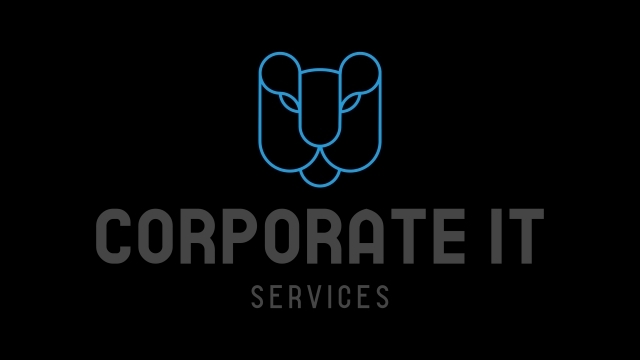Wedding Photography holds a special place in the realm of photography, as it beautifully captures the essence of love and captures everlasting moments that will be treasured for generations to come. It is an art form that encompasses not only the technical skills of a photographer but also the ability to understand and connect with individuals on their most precious day. From the joyous celebration to the intimate details, wedding photography is an art that allows for candid documentation of the magical journey that two souls embark upon.
The art of Wedding Photography goes beyond just snapping pictures; it involves capturing the emotions, interactions, and intricate details that make each wedding unique. Wedding photographers are entrusted with immortalizing the laughter, tears, and pure happiness experienced during this pivotal milestone. With their keen eye for detail, they preserve memories that will endure, allowing couples to relive their special day each time they glance at a photograph. From the exchange of vows to the unguarded moments between family and friends, wedding photography ensures that no precious memory is left unrecorded.
In today’s age, where photography has become an integral part of our lives, the demand for wedding photographers has soared. Couples are seeking professionals who not only possess the technical expertise to capture impeccable shots but also embody creativity and a deep understanding of the couple’s vision for their big day. Whether it’s the grandeur of a destination wedding or the intimacy of a small gathering, the art of wedding photography adapts to suit the unique needs of every couple.
Moreover, wedding photography has even expanded to incorporate various trends and technologies. From photo magnets as memorable wedding favors to photo booths that allow guests to capture their own special moments, these innovative additions have elevated the experience of capturing wedding memories. Additionally, corporate photography has also found a niche within the wedding industry, with many couples hiring professional photographers to capture the corporate events surrounding their wedding, such as engagement parties, bridal showers, and rehearsal dinners.
In conclusion, wedding photography is an art that melds technical skill with a deep understanding of love and the art of storytelling. It allows for the encapsulation of everlasting moments, ensuring that the beauty, tenderness, and joy of a couple’s special day are preserved for eternity. So, whether it’s through traditional wedding photography, the incorporation of innovative trends, or the embrace of corporate photography, the art of capturing weddings continues to evolve, yet always remains an invaluable aspect of this cherished occasion.
The Importance of Wedding Photography
Wedding photography holds immense significance in capturing the true essence and emotions of one of the most precious moments in a couple’s life. It allows them to reminisce and relive those unforgettable moments for years to come.
Photographs taken at weddings are not just ordinary pictures; they are cherished memories frozen in time. They capture the joy, love, and happiness shared by the couple and their loved ones on that special day. Each photograph tells a unique story, encapsulating the beautiful emotions and intimate moments of the wedding ceremony.
Wedding photography is not just about capturing the bride and groom; it is about documenting the journey of love, the bond between families, and the interactions among friends. These photographs become a treasure trove of memories, preserving the emotions and details that might otherwise fade with time.

By hiring a skilled wedding photographer, couples can ensure that every fleeting moment, every tender look, and every joyous celebration is captured with precision and artistry. The photographs become a tangible representation of the love story, a visual legacy that can be passed down from one generation to another.
In conclusion, wedding photography plays a vital role in preserving the beauty and significance of weddings. It immortalizes the most magical moments, enabling couples to forever cherish the memories of their special day.
Capturing Emotions: Techniques for Wedding Photography
When it comes to wedding photography, capturing emotions is at the heart of every shot. It’s about freezing those priceless moments filled with love, excitement, joy, and sometimes even tears of happiness. Successfully capturing these emotions requires a combination of technical skill and an understanding of human connections.
First and foremost, it’s important for wedding photographers to establish a rapport with the couple and their loved ones. By getting to know them better, photographers can create a comfortable and relaxed atmosphere, allowing emotions to flow naturally. This helps in capturing authentic and genuine expressions that truly reflect the love and happiness on this special day.
Another technique for capturing emotions is being attentive to the candid moments that unfold throughout the wedding. While posed shots have their place, it’s often the spontaneous interactions that truly convey the emotional essence of the event. Photographers need to be constantly aware of their surroundings, ready to capture fleeting glances, stolen kisses, and heartfelt gestures that occur spontaneously. These unscripted moments often hold an incredible depth of emotion and have the power to transport viewers back to that exact moment in time.
Lastly, it’s essential for wedding photographers to be skilled in the art of storytelling through their images. Each photograph should tell a story, evoking emotions and immersing viewers in the atmosphere of the day. This can be achieved through composition, lighting, and the careful selection of key moments that showcase the most meaningful emotions throughout the wedding.
By combining technical expertise with a deep understanding of human emotions, wedding photographers can create timeless and captivating images. These photographs become cherished mementos of such a significant event, allowing couples and their families to relive the emotions and memories for years to come.
Beyond Weddings: Exploring Events and Corporate Photography
Wedding photography might be the main focus of many photographers, but the world of events and corporate photography offers a whole new range of opportunities. Capturing the essence of special occasions and corporate gatherings requires a unique set of skills and a keen eye for detail.
Events photography involves documenting memorable moments at various types of events, such as birthdays, anniversaries, and graduation ceremonies. The photographer’s task is to capture the atmosphere, the emotions, and the interactions between people, ensuring that the images tell a story that will be cherished for years to come. Events photography requires flexibility and adaptability, as each event brings its own set of challenges and unique moments to capture.
Corporate photography, on the other hand, focuses on capturing the professional world. It encompasses various aspects, including headshots, team photos, and coverage of corporate events, such as conferences and product launches. The goal of corporate photography is to create images that reflect the professionalism and personality of a company, helping to strengthen its brand and showcase its values.
For both events and corporate photography, having the right equipment is essential. From high-quality cameras to specialized lenses and lighting equipment, photographers need to be well-equipped to capture those fleeting moments with perfection. Additionally, editing skills and the ability to deliver the final product in a timely manner are crucial for success in this field.
While wedding photography holds its own charm, venturing into events and corporate photography opens up a world of possibilities for photographers to showcase their talent and create lasting memories outside the realm of wedding ceremonies.












